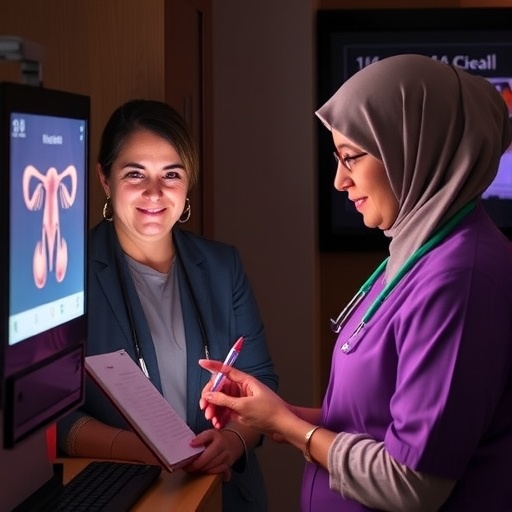In recent years, the concept of microlearning has emerged as a powerful educational tool, particularly in the context of nursing education. The study conducted by Tayebi et al. delves into its implications on fertility knowledge and attitudes among Iranian nursing students, providing a comprehensive analysis of how this methodology can enhance understanding in a critical area of healthcare. With the increasing complexity of health information and the nuanced understanding required for effective nursing practice, such innovative approaches hold significant promise.
Microlearning, which involves delivering educational content in short, focused segments, caters to the cognitive needs of modern learners. This technique aligns well with the fast-paced world in which students operate, allowing for an efficient absorption of critical information without overwhelming them. The research led by Tayebi et al. investigates the effectiveness of this method specifically in the realm of fertility—a subject that is often shrouded in stigma and misinformation.
In their interventional study, the researchers aimed to assess not just the knowledge gained by participants but also the attitudes that may be influenced through a targeted curriculum. The study participants included nursing students who often serve as the frontline in healthcare settings, thus emphasizing the importance of equipping them with accurate fertility knowledge. The study’s findings bear considerable relevance, as they challenge the conventional methods of teaching that have historically dominated nursing education.
One of the study’s key findings was that microlearning significantly improved the knowledge base of participants regarding fertility issues. Students who engaged with the microlearning modules exhibited a marked increase in both factual understanding and the ability to communicate these concepts effectively to patients. This transformation highlights the necessity of agile learning structures that can adapt to evolving content areas such as reproductive health.
In addition, the study explored how attitudes towards fertility issues were influenced through the microlearning experience. The authors found that students who were previously hesitant to discuss fertility topics became more open and accepting of these discussions, which is crucial in a healthcare setting. This shift not only benefits the students personally but is also instrumental in promoting better patient care and informed decision-making in clinical environments.
The implications of the research extend beyond educational strategies; they reach into the broader context of public health and societal norms. As nursing students gain confidence and knowledge about fertility, they become better advocates for reproductive health issues within their communities. This is particularly important in regions like Iran, where cultural stigmas surrounding reproductive health can often lead to a lack of proper education and resources.
Furthermore, the researchers utilized assessment tools to measure the effectiveness of their intervention. By comparing pre-and post-intervention results, they could provide quantitative evidence of the positive impact microlearning had on participants. This evidence supports the integration of microlearning as a standard pedagogical approach in nursing curricula, potentially revolutionizing how sensitive health topics are addressed in educational settings.
The study by Tayebi et al. stands out as a pioneering exploration of microlearning focused specifically on fertility knowledge in Iranian nursing students. It sets the stage for further research into how tailored educational interventions can enhance various facets of healthcare education. Indeed, as healthcare continues to evolve, the methods employed to prepare future nurses must also be adaptable, embracing new educational paradigms like microlearning.
As nursing education worldwide grapples with issues of accessibility, retention, and engagement, the lessons derived from this study could have far-reaching implications. The effectiveness of microlearning in such a critical subject area not only underscores its viability as a teaching method but also prompts further investigation into its applications across different medical topics.
The integration of technology and innovative educational strategies like microlearning can significantly reshape the nursing profession, fostering a generation of healthcare providers who are not only knowledgeable but also empathetic and well-prepared to tackle sensitive issues in patient care. As more studies emerge that corroborate these findings, the future of nursing education may very well hinge on the ability to adapt education to meet the dynamic needs of both students and the populations they serve.
The findings of this research are timely as healthcare educators seek new ways to impart essential knowledge effectively. The potential for microlearning to bridge gaps in education and influence positive changes in attitudes presents an exciting frontier. As the field of nursing continues to evolve, so too must the strategies employed to equip its practitioners with the skills and knowledge necessary for success.
In conclusion, Tayebi et al.’s study into the effects of microlearning on Iranian nursing students represents an essential step towards modernizing healthcare education. It lays the groundwork for further exploration and underscores the critical nature of addressing fertility knowledge and attitudes through innovative teaching methodologies. The positive outcomes observed in this study suggest that microlearning could be a cornerstone in developing future educational interventions in nursing, ultimately leading to enhanced patient care across multiple settings.
Subject of Research: The effects of microlearning on the fertility knowledge and attitude of Iranian nursing students.
Article Title: The effects of microlearning on the fertility knowledge and attitude of Iranian nursing students: an interventional study.
Article References:
Tayebi, Z., Behmaneshpour, F., Tourzani, Z.M. et al. The effects of microlearning on the fertility knowledge and attitude of Iranian nursing students: an interventional study.
BMC Nurs 24, 1112 (2025). https://doi.org/10.1186/s12912-025-03763-w
Image Credits: AI Generated
DOI: 10.1186/s12912-025-03763-w
Keywords: microlearning, nursing education, fertility knowledge, interventional study, Iranian nursing students.
Tags: attitudes towards fertility educationeffective teaching methods in healthcareenhancing nursing practicefertility knowledge among nurseshealthcare information complexityimproving healthcare education strategiesinnovative educational approachesinterventional study in nursingIranian nursing studentsmicrolearning in nursing educationshort focused learning segmentsstigma in fertility discussions





